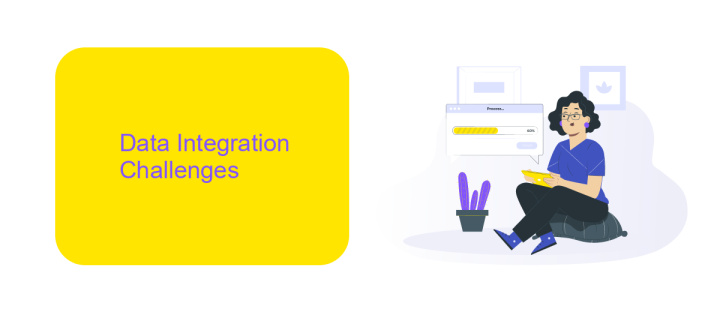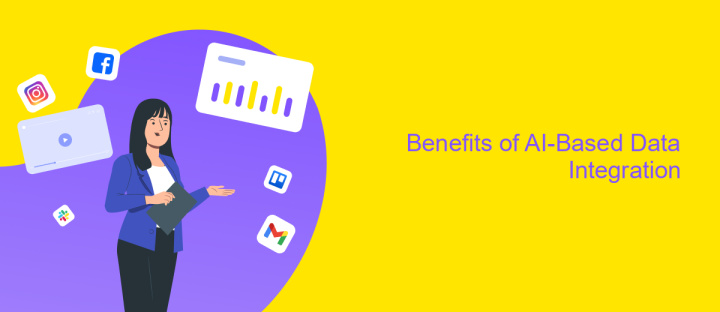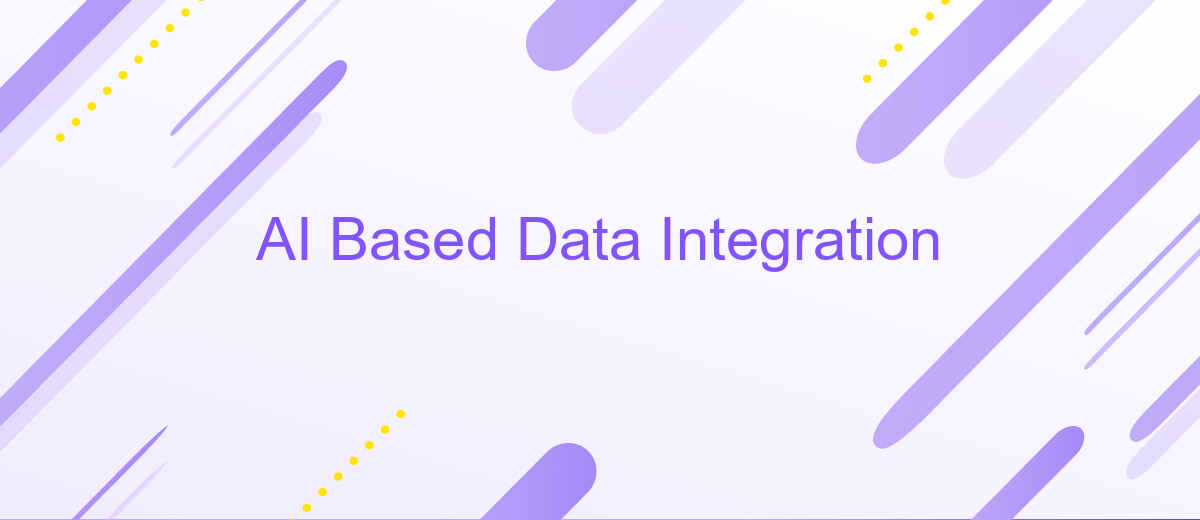AI Based Data Integration
Artificial Intelligence (AI) is revolutionizing data integration by automating complex processes and enhancing accuracy. AI-based data integration leverages machine learning algorithms to seamlessly combine data from diverse sources, providing a unified and coherent view. This innovative approach not only saves time and resources but also enables more informed decision-making, driving business efficiency and competitive advantage.
Introduction
Artificial Intelligence (AI) has revolutionized various sectors, and data integration is no exception. AI-based data integration leverages machine learning algorithms and advanced analytics to streamline the process of combining data from disparate sources into a unified view. This approach not only enhances the accuracy and efficiency of data integration but also reduces the time and resources required for manual data handling.
- Automated data mapping and transformation
- Improved data quality and consistency
- Real-time data integration and updates
- Scalability to handle large volumes of data
By incorporating AI into data integration processes, organizations can achieve more reliable and timely insights, enabling better decision-making and operational efficiency. As the volume and complexity of data continue to grow, AI-based solutions will become increasingly critical for managing and leveraging data effectively.
Data Integration Challenges

Data integration presents several challenges, particularly when dealing with disparate data sources and formats. One of the primary issues is data inconsistency, where different systems may have conflicting or redundant information. This can lead to inaccurate analytics and poor decision-making. Additionally, integrating data from legacy systems can be complex due to outdated technologies and lack of standardization. Ensuring data quality and consistency across all systems requires significant effort and meticulous planning.
Another challenge is the scalability and performance of the integration process. As data volumes grow, maintaining efficient and timely integration becomes increasingly difficult. Security and compliance are also critical concerns, especially when handling sensitive information. Tools like ApiX-Drive can help mitigate some of these challenges by providing automated data integration solutions that simplify the process. ApiX-Drive supports various data sources and formats, making it easier to harmonize data from multiple systems while ensuring high standards of data quality and security.
AI-Based Data Integration

AI-based data integration leverages artificial intelligence to automate and optimize the process of combining data from different sources. This approach enhances the efficiency and accuracy of data integration, making it possible to handle large volumes of data with minimal human intervention. By utilizing machine learning algorithms and natural language processing, AI can identify patterns, match data, and resolve discrepancies more effectively than traditional methods.
- Data Extraction: AI tools extract data from various sources, including databases, APIs, and unstructured data.
- Data Transformation: Machine learning algorithms transform the extracted data into a consistent format.
- Data Matching: AI identifies and matches similar data points across different sources.
- Data Cleaning: Natural language processing helps in detecting and correcting errors or inconsistencies in the data.
- Data Loading: The processed data is loaded into a unified system for further analysis and use.
Implementing AI-based data integration not only improves the speed and accuracy of data handling but also reduces the need for manual intervention. This results in more reliable data insights and enables organizations to make data-driven decisions more efficiently.
Benefits of AI-Based Data Integration

AI-based data integration offers a transformative approach to managing and unifying data from multiple sources. By leveraging artificial intelligence, organizations can automate the complex processes of data cleaning, mapping, and transformation, thereby reducing the time and effort required for manual data handling. This leads to more accurate and reliable datasets that can drive better decision-making and operational efficiency.
Moreover, AI-driven solutions can continuously learn and adapt to new data patterns and sources, ensuring that the integration process remains robust and scalable. This adaptability is crucial in today's fast-paced business environment, where data landscapes are constantly evolving. The ability to seamlessly integrate diverse data types and formats enhances the overall agility of an organization.
- Improved data accuracy and consistency
- Reduced manual intervention and errors
- Enhanced scalability and flexibility
- Faster data processing and integration
- Better decision-making capabilities
In conclusion, AI-based data integration not only streamlines data management processes but also empowers organizations to harness the full potential of their data assets. By automating and optimizing data workflows, businesses can achieve greater efficiency, agility, and insight, positioning themselves for success in a data-driven world.
- Automate the work of an online store or landing
- Empower through integration
- Don't spend money on programmers and integrators
- Save time by automating routine tasks
Conclusion
In conclusion, AI-based data integration represents a significant advancement in how businesses manage and utilize their data. By automating the process of data integration, AI can reduce errors, increase efficiency, and provide deeper insights. This technology enables organizations to seamlessly connect disparate data sources, ensuring that information flows smoothly and is readily accessible for decision-making.
Moreover, services like ApiX-Drive exemplify the practical applications of AI in data integration. ApiX-Drive offers a user-friendly platform that simplifies the setup of integrations without the need for extensive technical knowledge. By leveraging such tools, businesses can streamline their operations, reduce costs, and enhance their data-driven strategies. As AI continues to evolve, the potential for even more sophisticated and efficient data integration solutions will only grow, further transforming the landscape of data management.
FAQ
What is AI-Based Data Integration?
How does AI improve data integration processes?
What are the benefits of using AI for data integration?
Can small businesses benefit from AI-based data integration?
What tools are available for implementing AI-based data integration?
Do you want to achieve your goals in business, career and life faster and better? Do it with ApiX-Drive – a tool that will remove a significant part of the routine from workflows and free up additional time to achieve your goals. Test the capabilities of Apix-Drive for free – see for yourself the effectiveness of the tool.


